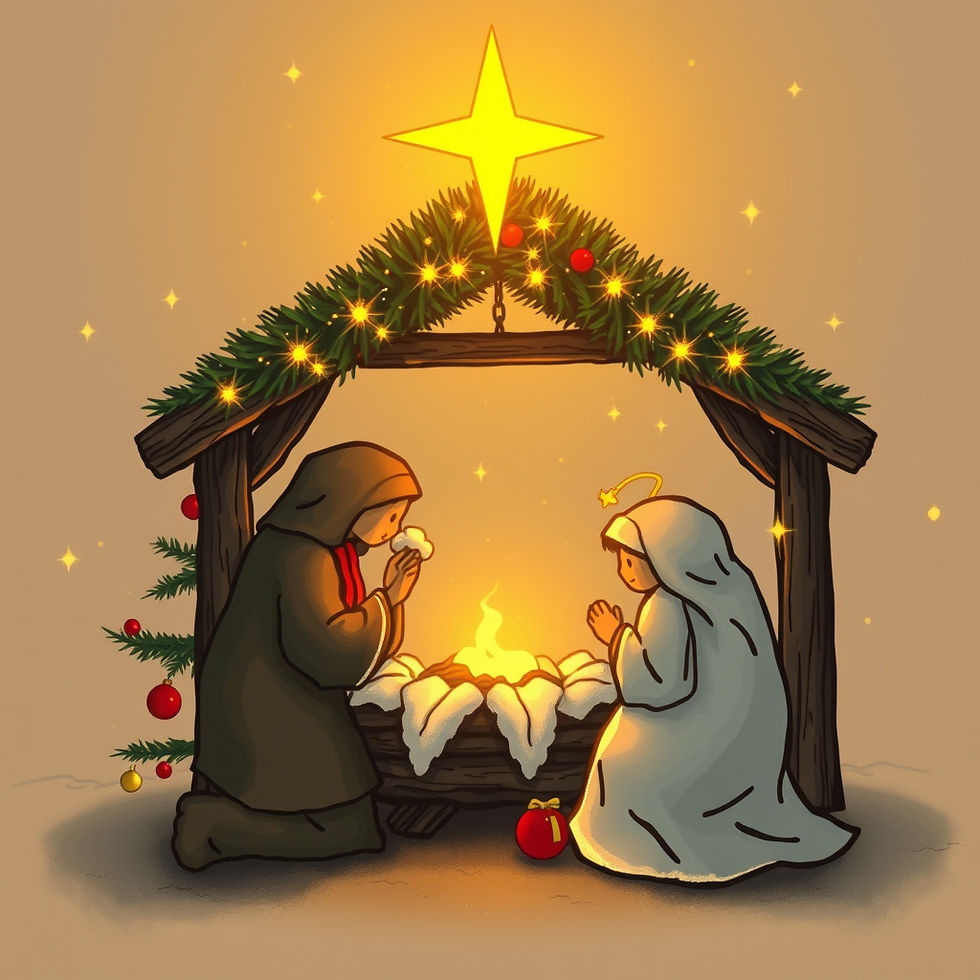Paradise Found
- Eldon Peterson
- Apr 19, 2018
- 3 min read
This March we visited family in Kauai. If you’re from Cache Valley, it’s likely that the warm weather and beaches of Hawaii are the very things that defines paradise. But what happens when paradise doesn’t measure up to our expectations? It necessitates a redefinition of paradise.
During our visit, we only had one “paradise” day; a day without a cloud in the sky and the warm ocean breeze on our faces. During our visit, it was cool and rainy for nearly three weeks: multiple days of flash flood warnings, the road to the northern part of the island was closed twice because of high water and mud slides. Many of the tourists that we spoke to were disappointed because this was not what paradise was supposed to be like.
What is it to be like? The dictionary says paradise is, “an ideal or idyllic place or state.” We desire to escape the cold, snowy weather of Cache Valley for the paradise of the warm beaches of Hawaii to lay on the beach and play in the ocean’s waves. However, the definition of paradise is subjective. Those living in paradise are likely to long for something other than 365 days of sun and sandy beaches. For example, my sister in-law commented on how refreshing the rain was on her part of the island because it was not the norm.
Yet, no matter how we define paradise, we all long for that idyllic place where all our itches will be scratched. However, it is this very desire, believing that this idyllic place or state is somewhere different than where we are at, that makes it a challenge to find. As Eddie Money sings in “Two Tickets to Paradise,” believing that we need to go somewhere to find paradise makes it something that we must wait for and can become an elusive dream that slips through our fingers like sand on the beach.
Even when we find that place where the skies are always blue and where we have nothing to do but play in the waves or relax in an easy chair reading a good book, life still happens. We get notification of cancer, or the death of a loved one, of the loss of a job; life will bring things that are far worse than storms on our trip to paradise. When we face such trials, we can struggle to find meaning in this life. When facing such pain, we realize that escaping to paradise isn’t the answer we need. We need to find paradise where we are.
In John Milton’s classic, “Paradise Lost” he considers the question of the fall of Adam and Eve in Genesis. Of course, Milton examines much more than this in his expansive prose but it is centered around how paradise was lost because of sin. With paradise lost, we now live our lives not in a utopian paradise but in the reality of the daily grind. As we watch the storm clouds roll in, uncertain if the skies will ever clear, we long to escape to paradise.
What we need is a hope that sees us through the storms. Without a reason for hope, we’re likely to wonder like Solomon if everything is meaningless, “I have seen all the things that are done under the sun; all of them are meaningless, a chasing after the wind.” (Ecclesiastes 1:14) Thankfully, Ecclesiastes does not leave us in despair but reminds us of the reality that we already intuitively know: all human efforts apart from God’s will are meaningless. Solomon had everything that life could offer and yet he found that when he left God out of the equation, nothing satisfied him. In the end, he discovers that purpose in life is only found in knowing God and keeping His commands.
It is important for us to learn this lesson as well. It is great to have the opportunity to escape and enjoy paradise, but at some point, we need to return home to the reality in which we live. Unless we know the truth that Solomon learned then we will find ourselves in an endless pursuit of pleasure that cannot bring the satisfaction and meaning that we desire.
We need to regain the paradise lost in the fall; we need to find hope and purpose that doesn’t require escaping this life. Paul says, “This means that anyone who belongs to Christ has become a new person. The old life is gone; a new life has begun!” (2 Corinthians 5:17) We need paradise regained in Christ.




Comments